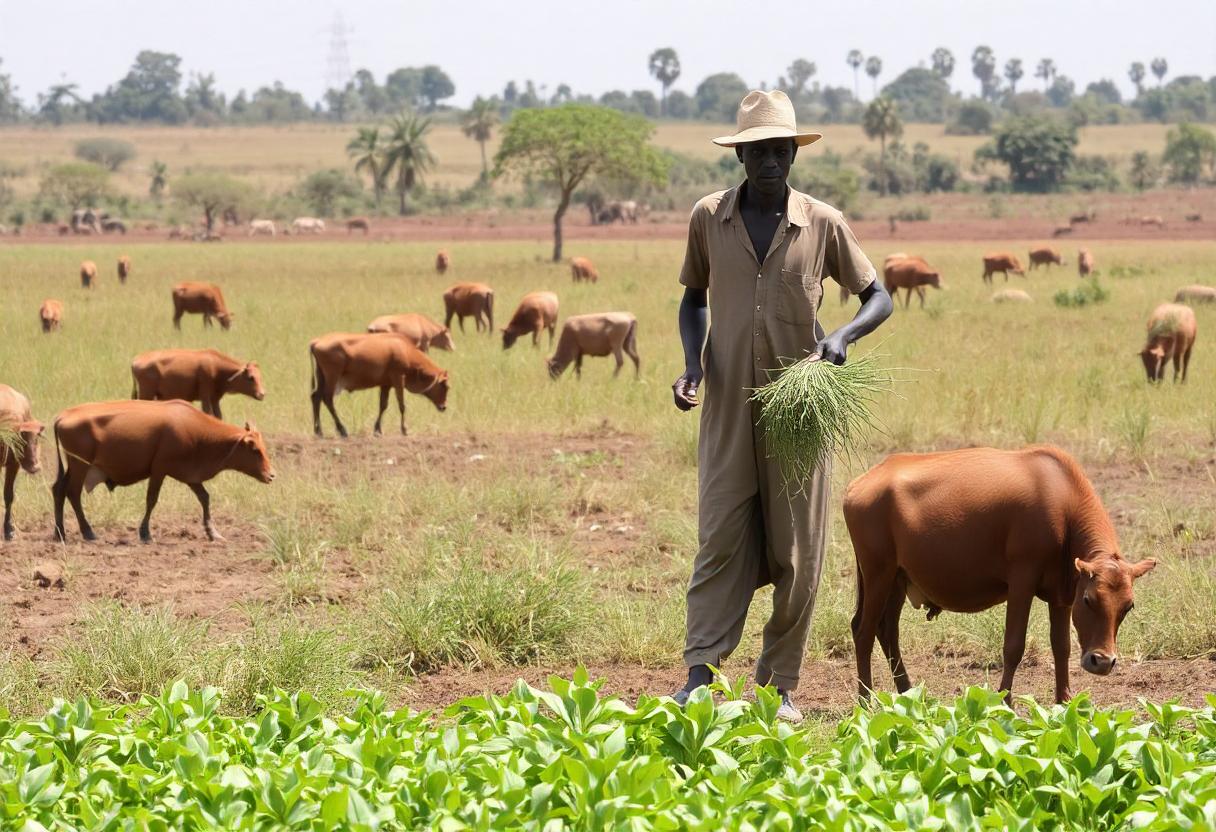
Agriculture is a cornerstone of Zimbabwe’s economy and plays a crucial role in the livelihoods of many Zimbabweans. With diverse climatic and soil conditions, the country supports a variety of agricultural activities, ranging from crop production to livestock farming.
Key Agricultural Products
Zimbabwe’s agriculture sector is diverse, with key products including:
- Cereals: Maize is the staple food crop, crucial for food security in Zimbabwe. Other important cereals include sorghum and millet, which are grown in different regions based on climatic conditions.
- Cash Crops: Tobacco is a significant cash crop and a major export product for Zimbabwe. Other cash crops include cotton, which supports both domestic and international markets.
- Horticulture: Zimbabwe has a growing horticultural sector, producing fruits such as citrus, apples, and avocados. Vegetables like tomatoes, potatoes, and onions are also cultivated for both domestic consumption and export.
- Livestock: The livestock sector includes cattle, goats, sheep, and poultry. Cattle farming is particularly important, with both beef and dairy production contributing to the economy.
Climatic and Soil Conditions
Zimbabwe’s agricultural practices are influenced by its climatic zones, which range from semi-arid to subtropical. The country experiences a rainy season from November to March, crucial for crop growth. The varying rainfall patterns and temperatures across regions necessitate different farming practices and crop selections.
Soil types in Zimbabwe vary from sandy soils in the lowveld to fertile soils in the highveld. The diversity in soil conditions supports a range of agricultural activities, though soil fertility and erosion are ongoing concerns.
Challenges in Zimbabwean Agriculture
The agriculture sector in Zimbabwe faces several challenges:
- Climate Change: Variability in rainfall patterns and increasing temperatures affect crop yields and water availability, impacting food security.
- Land Degradation: Deforestation, overgrazing, and unsustainable farming practices have led to soil erosion and reduced land productivity.
- Economic Instability: Economic challenges, including inflation and currency fluctuations, impact the cost of inputs and the overall profitability of farming.
- Infrastructure and Support: Limited access to modern farming technology, extension services, and reliable markets hinders productivity and growth in the agriculture sector.
Government and Policy Initiatives
The Zimbabwean government has implemented various policies to support agriculture, including:
- Land Reform Programs: Initiatives to redistribute land aim to address historical inequities and increase agricultural production.
- Support Programs: The government provides support through subsidies, input programs, and development projects aimed at improving productivity and sustainability.
- Research and Development: Investments in agricultural research and development focus on improving crop varieties, pest management, and sustainable farming practices.
The Role of Smallholder Farmers
Smallholder farmers play a vital role in Zimbabwe’s agriculture sector. They contribute significantly to food production and rural livelihoods. However, they often face challenges related to access to resources, technology, and markets.
Efforts to support smallholder farmers include providing training, improving access to credit, and developing cooperative structures to enhance their market reach and bargaining power.